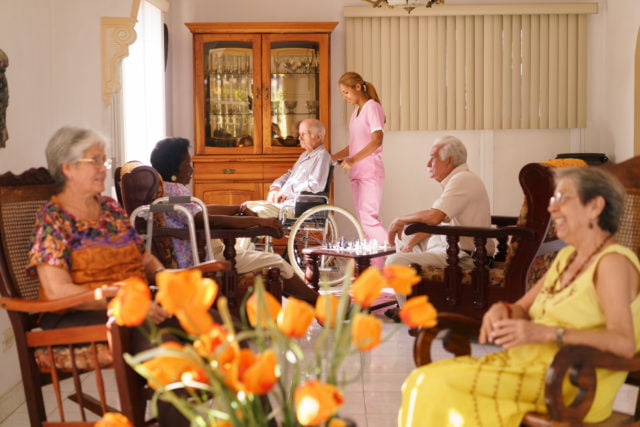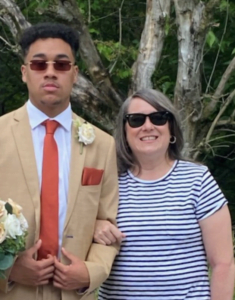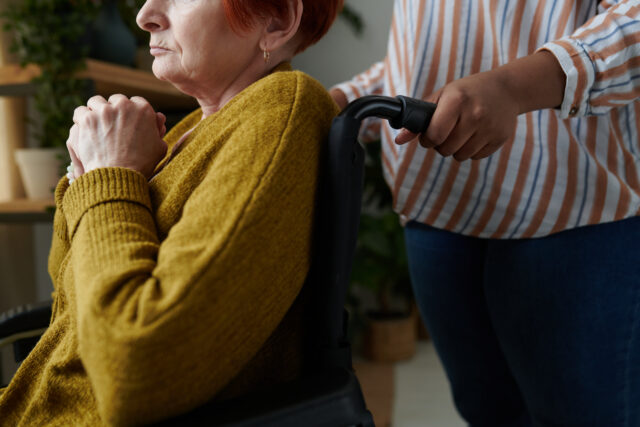
Every Caregiver’s Challenge is Unique
Caregivers for loved ones with dementia experience their duties in ways that are unique to the individuals they’re caring for.
Some wrestle with the behavioral issues of the people in their care, while others must balance caregiving and work or struggle to navigate the Medicaid system, line up day care, or track down a reliable in-home professional.
“There is no one way to care for a loved one who has dementia,” says Amy Goyer, caregiver and author of “Juggling Life, Work and Caregiving.”
Goyer feels that every caregiver’s perspective could be useful to someone else going through the same thing. She recently hosted a webinar that opened a window on the lives of three Pennsylvania caregivers – one for a father, one for a husband, and one for a partner’s mother.
The three women had a couple things in common, including the stress of shouldering the burden and the strain on their finances of paying for the all-day care that family members required, especially in the later stages of dementia.
But the similarities ended there. To understand the variety and depth of each person’s experience, there is no substitute for hearing directly from them in this webinar, which was sponsored by AARP, the Alzheimer’s Association, and the Pennsylvania Association of Area Agencies on Aging.
Here are snippets of their stories:

Robin Madison’s husband had Lewy body dementia, and Madison had four jobs: wife, mother, breadwinner, and caregiver. Her husband was 18 years older, and she was fully aware that she might one day have to take care of him. On the good days, he could be entertained by playing music on his tablet or watching television for hours. But he was often ill-tempered and difficult to manage.
Madison described her seven years of caregiving as a “battle” – a battle to get a diagnosis, to work at home while her husband roamed the house, and to secure consistent end-of-life caregivers for her husband, who died last year.
In the final months of his life, he was receiving in-home hospice, which proposed sending him to a facility close to home – for $10,000 a month. Should Madison pay that bill or pay for college for her son, Morgan? “I had to choose my son and his future,” she said. The pair shared caregiving duties.
Madison stressed that it was important to get something positive out of a very difficult time. Her son decided they should donate his father’s brain to science “to help somebody else,” she said. Madison is grateful to have emerged from the experience with a stronger bond with her son. “All we had was each other,” she said. Turns out that was a lot to have.
Diane Powell’s family could not afford professional care for her mother and father either. But one of the hardest things for Powell and her sister, who shared caregiving duties, came early in their father’s dementia, when they were “trying to figure out what is wrong.” Something was clearly amiss when her father, who owned a trucking company, would get lost on the road and couldn’t remember how to get home. A family member would figure out where he was and drive there to guide him home.
Nevertheless, Powell considered herself lucky: her father remained fairly self-sufficient – he could dress and bathe himself – and was content at daycare between 9 a.m. and 2:30 p.m. He became withdrawn at times, she said, but was generally good natured and perked up when people came around who would listen to his many stories.
But the sisters carried the entire burden of caring for their father, in part because family members who might’ve helped were “in denial” about what was happening, she said. As the parents needed more and more care, their pride also got in the way of accepting their daughters’ help. Powell said she would drop off food at her parents’ house in the morning, and her sister would stop by in the evening.
“The food would still be there untouched,” she said. “It was very challenging.”
Peggy Gelsinger assisted in caring for her partner’s mother. The mother lived with the couple for four years. When they could no longer manage the situation, they moved her into a facility. She died 10 years later.
Caregiving had a “life-changing” impact on the couple’s finances, Singer said. Her partner took a $50,000 pay cut after quitting a good job to find work closer to home. Singer said the best thing they could do for the mother was get her out of the house. She was very outgoing and enjoyed tagging along to golf games, where she rode in the golf cart, or going to dinner, the grocery store, or to see friends.
To cope, Singer said, “We got up and got out of the house. We just kept her busy.”
Caregivers often try to do most of the work on their own. But Gower, the webinar host, urged caregivers to find a team of family, friends, non-profits, and professionals to support them. Her mother’s hairdresser even picked up her parents and would take them to the salon.
“That was a little break for me,” Gower said. “The thing I learned was that I can do anything but I can’t do everything.”
The Alzheimer’s Association has online support groups and staffs a 24-hour help line 365 days a year at 800-272-3900. AARP provides toll-free numbers for information – in English (877-333-5885) and in Spanish (888-971-2013).
To get information about local resources available to caregivers, try the area agency on aging in your city. Some of these organizations are more helpful than others, but they’re a good place to start.
Squared Away writer Kim Blanton invites you to follow us on Twitter @SquaredAwayBC. To stay current on our blog, please join our free email list. You’ll receive just one email each week – with links to the two new posts for that week – when you sign up here. This blog is supported by the Center for Retirement Research at Boston College.






